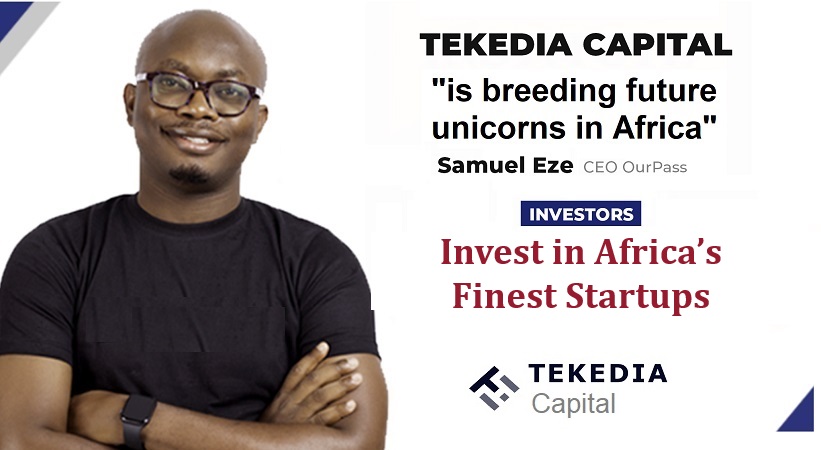News
“Hamster” Cryptocurrency Craze Takes Over Iran Amid Crumbling Economy

Taxi drivers and motorcyclists tap furiously on their mobile phones as they wait at red lights in the Iranian capital during an early June heat wave. Some pedestrians in Tehran are doing the same. Everyone believes they could get rich.
The object of their rapt attention? The “Hamster Kombat” app.
5 View the gallery
 Aside from a broader cryptocurrency craze, the app’s rise in Iran highlights a harder truth the Islamic Republic faces ahead of Friday’s presidential election to replace the late President Ebrahim Raisi, who died in a helicopter crash in May: an economy hampered by Western sanctions, persistently high inflation and a lack of jobs.
Aside from a broader cryptocurrency craze, the app’s rise in Iran highlights a harder truth the Islamic Republic faces ahead of Friday’s presidential election to replace the late President Ebrahim Raisi, who died in a helicopter crash in May: an economy hampered by Western sanctions, persistently high inflation and a lack of jobs.
Even as presidential candidates promise to restore the country’s economy, Iranians, who have been hearing about bitcoin for years, are now flocking to this app in the pure hope that it will one day bear fruit, without knowing much about who it is. ‘and behind.
“It’s a sign of desperation, honestly,” said Amir Rashidi, director of digital rights and security at Miaan Group and an expert on Iran. It’s about “trying to hold on to anything you have a little hope that might one day turn into something precious.”
Those able to divest from holdings in Iran’s currency, the rial, have purchased property, artwork, vehicles, precious metals and other material assets since the collapse of Tehran’s 2015 nuclear deal with world powers.
At the time of the agreement, the exchange rate was 32,000 rials for 1 dollar. Today it approaches 580,000 rials to the dollar – and many have found that the value of their bank accounts, pension funds and other holdings has been weakened by years of rapid depreciation.
5 View the gallery


Meanwhile, prices of fruit and vegetables have increased by 50% compared to last year, while the price of meat has increased by 70%. The cost of a shared taxi ride, common in the Iranian capital, has almost doubled. Rides on Tehran’s subway, still the cheapest option for the city’s commuters, also increased by about 30%.
“Since morning I have had three visitors in my shop, none of them bought anything,” said Mohammad Reza Tabrizi, who runs a clothing store in central Tehran. “Most customers prefer to buy from street vendors or used items in other places.”
In underground passages and other areas of the city, street vendors sell almost anything they can get their hands on. It is this desperate environment that has seen increased public interest in cryptocurrencies and mobile games that offer coins.
The proliferation of smartphones across Iran, as well as the relatively low cost of mobile service compared to other nations, make access to apps like “Hamster Kombat” attractive.
The app is accessed via the Telegram messaging app, which remains popular in Iran despite authorities’ efforts to block access. It works like an incremental or “clicker” game: users repeatedly click on an object or complete repetitive tasks to earn points.
5 View the gallery
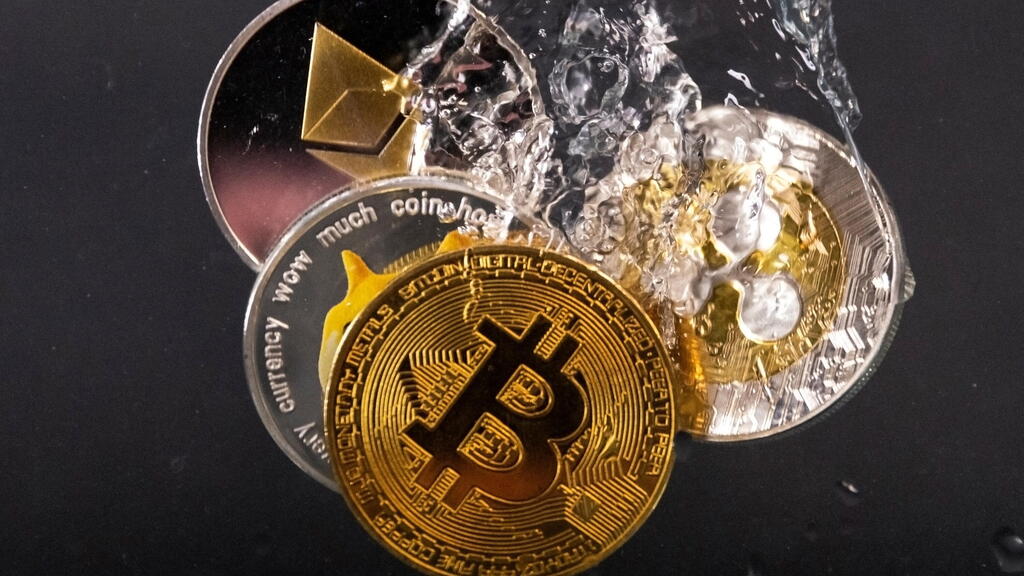

In “Hamster Kombat,” users believe they can access a supposed cryptocurrency associated with the game that has not yet been publicly traded.
In an email, people describing themselves as the game’s developers declined to answer questions about their identities or business plans, but insisted that they were “not offering any cryptocurrency in the game.”
“We are educating our audience about cryptocurrencies through game mechanics,” the email states.
However, the game resembles another app that once offered cryptocurrency to Iranians – and it seems that just the promise of what could be free money could drive some Iranians to distraction.
Online jokes show a man touching a tombstone as if it were a cell phone. Another uses a massage gun to quickly poke an on-screen hamster.
But the public’s interest in the game has also attracted the attention of the authorities.
Rear Admiral Habibollah Sayyari, deputy head of Iran’s military, described the app as part of the West’s “soft war” against Iran’s theocracy ahead of the election.
5 View the gallery
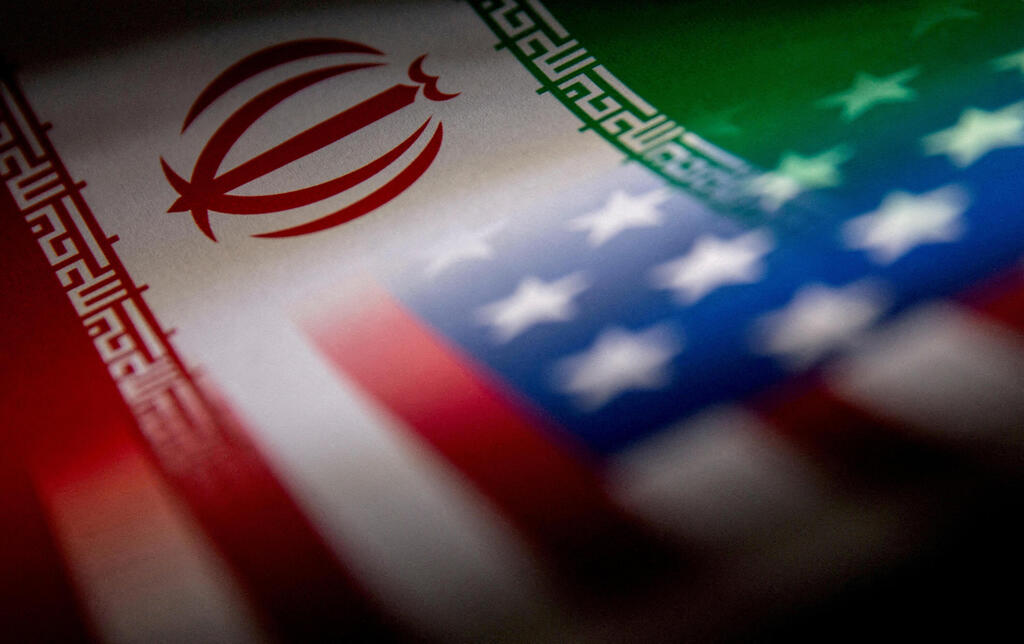

(Photo: REUTERS/Dado Ruvic/Illustration/File photo)
“One of the characteristics of the enemy’s soft war is the game of ‘Hamster,’” Sayyari said, according to state news agency IRNA. He theorized that the “enemy” is popularizing the game so that people will be distracted and not “pay attention to the plans of the presidential candidates.”
“Then (people) fail to choose the best candidates,” Sayyari said. Hardline experts in Iran have expressed similar views.
The JameJam newspaper, published by Iranian state television, also warns that the ever-increasing interest in the game is a sign of “the dream of becoming rich overnight and accumulating wealth effortlessly.” Players are said to range from “builders, mechanics and refrigerator repairers to colleagues and classmates at university.”
“A society that instead of working and trying to succeed and earn money relies on these games and looks for shortcuts and windfalls, gradually loses the culture of effort and entrepreneurship and shifts towards convenience,” the newspaper said, without recognizing that the country’s economic problems were potentially driving interest in the app.
The app has even caught the attention of a 97-year-old Shiite religious scholar, Ayatollah Nasser Makarem Shirazi, known for his fatwas declaring things “haram” or “forbidden” from his office in the holy city of Qom. Iran’s center of Shia learning, filled with religious schools and revered shrines.
Calling the cryptocurrency “the source of a lot of abuse,” Shirazi said people should not use the “Hamster Kombat” app or similar ones involving bitcoin.
5 View the gallery


Bitcoin
(Photo: Shutterstock)
Iran is not alone in having concerns about the game.
Ukrainian authorities, locked in a devastating war with Iran-armed Russia since Moscow’s 2022 invasion, have warned that user data remains stored in Russia and could potentially put it at risk.
Then there is the broader risk of exposure to malware as consumers in Iran often cannot legally purchase new software or even access legitimate app stores. They also run the risk of state-sponsored hackers targeting them for their political views.
Meanwhile, as Iran’s election campaign continues, presidential candidates are using Instagram, X and Telegram, all services previously banned by the theocracy after a series of nationwide protests.
“As long as you are able to pay the price, everything is available,” said Rashidi, the Iran expert.
News
US Cryptocurrency Rules Delayed by ‘Never-Ending’ Lawsuits

Ripple CEO says cryptocurrency industry still seeking regulatory clarity from US
Speaking to Bloomberg News on Wednesday (July 17), Author: Brad Garlinghouse he said America is behind behind other countries which have already adopted cryptocurrency regulations.
“What we’re seeing, where it’s the UK, Japan, Singapore… even the European Union, more than two dozen countries have come together to provide a framework for cryptocurrency regulation,” Garlinghouse said.
“It’s frustrating that we as a country can’t get that regulatory framework in place. And instead, we have this never-ending lawsuit coming from the SEC that doesn’t really address the problem.”
Ripple has been the target of some of these legal disputes. Securities and Exchange Commission (SEC) sued the company in 2020, accusing it of conducting a $1.3 billion operation offering of unregistered securities tied to its XRP token.
However, last year a judge ruled that only Ripple’s institutional sales of XRP, not retail sales, violated the law, a decision widely seen as a victory for the cryptocurrency industry.
As PYMNTS noted at the time, that ruling has “far-reaching repercussions impact across the digital asset ecosystem, which has long maintained that its tokens do not represent securities contracts.”
However, Garlinghouse told Bloomberg on Wednesday that the company cannot wage multimillion-dollar legal battles over each token.
He spoke to the news agency from the Republican National Convention in Milwaukee, where the party is backing the candidacies of former President Donald Trump and Ohio Sen. J.D. Vance, both of whom are considered pro-cryptocurrency.
But Garlinghouse argued that cryptocurrencies “should not be a partisan issue,” and noted that he had recently attended a conference in Washington that included Democrats, including White House officials.
“I think they were there, listening to the industry… it was refreshing to start having that conversation,” she said.
President Joe Biden earlier this year he vetoed a measure which would have ended the SEC’s special rules for crypto-asset custodians. This legislation was supported by both the digital asset industry and the banking industry.
Ripple early this year donated $25 million to the cryptocurrency industry’s super PAC Fair Smoothiewith Garlinghouse stating at the time that such donations would continue every year, as long as the industry had its detractors.
Second Open SecretsWhich monitor spending For campaigns, the PAC has spent $13.4 million this year, much of it to help defeat Rep. Katie Porter’s (D-Calif.) U.S. Senate campaign.
News
The Future of Cybersecurity in the Cryptocurrency Industry
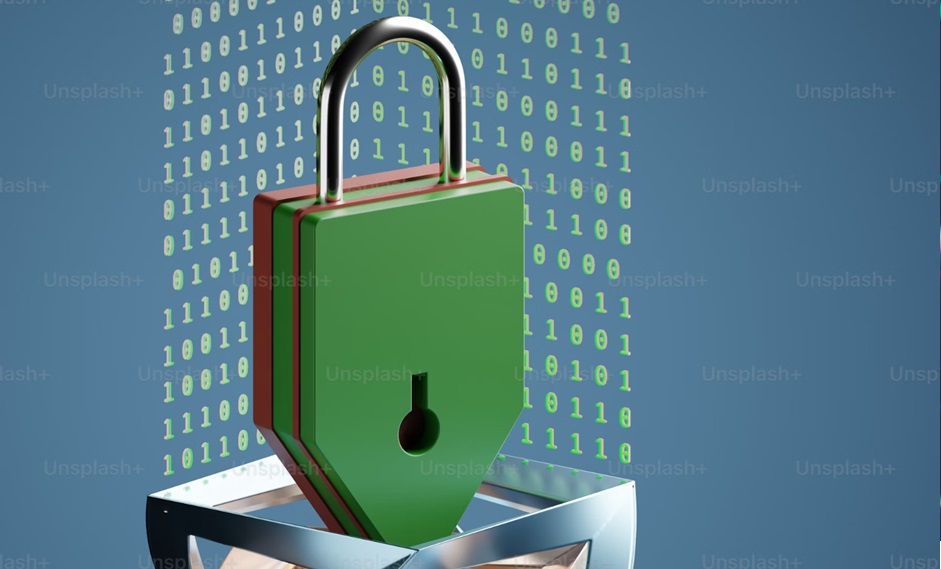
The cryptocurrency space has had a tumultuous journey, with its fair share of ups and downs. As we look to the future, one area that remains a constant focus is cybersecurity. The digital nature of cryptocurrencies makes them inherently vulnerable to cyber threats, and as the industry evolves, so does the landscape of potential risks.
In 2022, the cryptocurrency market faced significant challenges, with over $2 trillion in market value lost. This event served as a wake-up call for the industry, highlighting the need for robust cybersecurity measures. The future of cryptocurrency security is expected to see a shift towards more regulated and established institutions taking the reins of crypto technology and blockchain infrastructure.
The decentralized nature of cryptocurrencies offers numerous benefits, such as transparency and financial inclusion. However, it also introduces unique security challenges. The risk landscape is filled with threats such as hacking, phishing, ransomware attacks, malware, and social engineering. These threats not only lead to financial losses, but also damage the reputation and trust within the cryptocurrency ecosystem.
Mini-MBA Tekedia edition 15 ((September 9 – December 7, 2024) started recordings; Register today for discounts reserved for early bird customers.
Tekedia AI in Business Masterclass Opens registrations Here.
Join the Tekedia Capital Syndicate and IInvest in Africa’s best startups Here.
The decentralized nature of cryptocurrencies offers many benefits, but it also presents unique security challenges. Cyber risks such as hacking, phishing, and ransomware pose threats to the integrity of digital assets. The infrastructure that supports cryptocurrencies is not immune to vulnerabilities, including smart contract flaws and exchange hacks.
To address these vulnerabilities, the infrastructure that supports cryptocurrencies must be strengthened. Smart contract vulnerabilities, exchange hacks, wallet breaches, and flaws in the underlying blockchain technology are significant concerns that must be addressed to ensure the security and integrity of digital assets.
As cybercriminal tactics and techniques become more sophisticated, the cryptocurrency industry must stay ahead of the curve. The future will likely see more targeted attacks, exploiting weaknesses in infrastructure, networks, and human factors. This requires a proactive and multifaceted approach to cybersecurity.
To mitigate these risks, several measures must be adopted:
Strengthening security measures: Developers, exchanges, and wallet providers must improve security protocols, use strong encryption, implement multi-factor authentication, and conduct regular security audits.
Education and awareness: Users should be educated on best practices for protecting their digital assets, including using strong passwords, recognizing phishing attempts, and using hardware wallets for secure storage.
Looking ahead, the cryptocurrency industry is expected to see an increased focus on robust security measures. Blockchain projects and exchanges are likely to invest in advanced encryption techniques and decentralized storage solutions to protect user assets. The future impact of cyber risk on cryptocurrencies will depend on the collective efforts of stakeholders to address vulnerabilities and strengthen security measures.
Collective efforts by stakeholders in the cryptocurrency space are crucial to address vulnerabilities and strengthen security measures. While challenges persist, advances in cybersecurity technologies and practices offer hope for a more secure and resilient cryptocurrency ecosystem.
The future of cybersecurity in the cryptocurrency industry depends on finding a balance between innovation and regulation. It requires a collaborative effort from all parties involved, from developers to end users, to create a secure environment that fosters trust and growth in the industry. As we move forward, it is critical that lessons learned from past events guide the development of stronger security measures, ensuring the longevity and stability of cryptocurrencies as a vital part of the modern economic toolkit.
Like this:
Like Loading…
News
Bullish XRP and RLBK price predictions rise, outpacing the broader cryptocurrency market, prompting Shiba Inu holders to switch!

Bitcoin’s one-week surge from $60,000 has pushed other cryptocurrencies into an uptrend. However, for many altcoins, this trend has been temporary. Altcoins such as XRP and Shiba Inu (SHIB) have experienced price drops. However, Rollblock, a new altcoin on the Ethereum blockchain, has thrived during this period, attracting thousands of investors looking for long-term growth.
XRP’s Nearly 30% Growth Over Last Week Drops as Selling Pressure Increases
XRP is seeing further price decline as Ripple investors withdraw their profits from the token. The surge in XRP’s price to $0.64 in the past week has provided investors with a perfect opportunity to increase their returns in the short term. With the ongoing sell-off in XRP, XRP has jumped over 8% in the past day and is now trading at $0.59. However, analysts tracking XRP indicators predict that XRP could still extend its gains by over 30% in the coming weeks.
Shiba Inu (SHIB) marks its third consecutive day of losses
Shiba Inu (SHIB) is in a period of adjustment after a week of strong gains. In the last 24 hours, SHIB has seen a jump of over 7%, reflecting a natural market fluctuation. Analysts are observing a death cross on the Shiba Inu chart, which historically signals the potential for future opportunities as the market stabilizes. As investors explore new possibilities, some are diversifying into promising altcoins like Rollblock (RBLK) to strategically rebalance their portfolios and capitalize on the emerging trend.
Rollblock (RBLK) Up Another 7% as New Investors Join Pre-Sale
Rollblock (RBLK) has taken the cryptocurrency market by storm, having attracted investors from more popular altcoins like Shiba Inu (SHIB) and XRP. Rollblock’s growth is attributed to its utility in the $450 billion global gaming industry.
Rollblock aims to use blockchain technology to bridge the gap between centralized and decentralized gambling. With blockchain technology, Rollblock secures every transaction in its online casino, providing transparency and convenience to millions of players who are uncomfortable placing bets on other iGaming platforms.
This innovative use of blockchain technology in the industry has grown Rollblock to over 4,000 new users in less than two months. With plans to add sports betting, this number is expected to grow exponentially in Q3.
Rollblock uses a revenue sharing model that splits up to 30% of its casino’s weekly profits with token holders. This happens after Rollblock buys back $RBLK from the open market and uses half of it for rewards. The other half is burned to increase the price of $RBLK.
Rollblock price has seen four increases in the past month with $RBLK tokens now selling for $0.017. Analysts predict that at the current growth rate, Rollblock could increase by over 800% before the presale ends. For investors looking for a long-term token with growth potential, phase four is the best time to buy Rollblock before its price skyrockets!
Discover the exciting Rollblock (RBLK) pre-sale opportunities now!
Website:https://Rollblockpresale.io/
Social: https://linktr.ee/Rollblockcasino
No spam, no lies, just insights. You can unsubscribe at any time.
News
Texas Crypto Miners Turn to AI as Crypto Declines
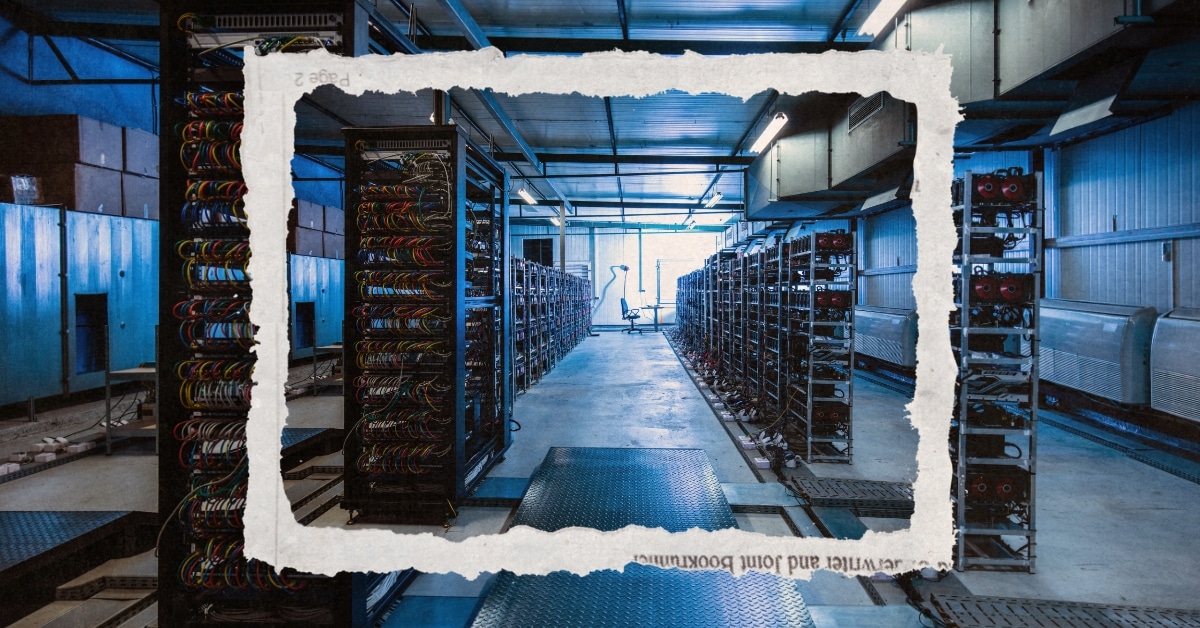
As cryptocurrency mining becomes less profitable, Texas cryptocurrency mining companies are switching to supporting artificial intelligence companies.
Bitcoin miners, with their sprawling data centers and access to significant energy resources, are ideally suited for computationally intensive AI operations, and as cryptocurrency mining becomes less profitable, companies see this shift as a logical answer to their problems.
On Thursday, Houston-based Lancium and Denver-based Crusoe Energy Systems announced a multibillion-dollar deal to build a 200-megawatt data center near the West Texas city of Abilene to support advanced artificial intelligence applications such as medical research and aircraft design, CNBC reported. The plant represents the first phase of a larger 1.2 gigawatt project.
Lancium and Crusoe’s move into AI mirrors a broader trend among bitcoin miners. The combined market capitalization of the top U.S.-listed bitcoin miners hit a record $22.8 billion in June. Companies like Bit Digital and Hut 8 are diversifying into AI, with Bit Digital securing a $92 million annual revenue deal to supply Nvidia GPUs and Hut 8 raising $150 million to expand its AI data center.
But the growing popularity of these operations also presents challenges, particularly for the Texas power grid. Last month, the Electric Reliability Council of Texas announced that the state is expected to nearly double its energy production by 2030 to meet the high energy demands of data centers and cryptocurrency operations.
Lieutenant Governor Dan Patrick expressed concern about the projections.
“Cryptocurrency miners and data centers will account for more than 50% of the additional growth. We need to take a close look at these two sectors,” He wrote on Twitter/X. “They produce very few jobs compared to the incredible demands they place on our network. Cryptocurrency miners could actually make more money selling electricity to the network than they do from their cryptocurrency mining operations.”
Analysts predict significant growth in data center power capacity, which is expected to account for up to 9% of U.S. electricity consumption by 2030.
The operations also pose challenges for nearby cities. Earlier this month, TIME reported that a crypto-mining facility was seriously compromising the health of residents in the city of Granbury. TIME reported more than 40 people with serious health problems, including cardiovascular disease, high blood pressure and hearing loss. At least 10 of the residents needed to go to the emergency room or an urgent care facility.
The disturbances were caused by the extreme noise generated by the crypto-mining facility’s fans, which are used to keep the machines cool. While the proposed data center in Abilene would use liquid cooling systems, it’s still unclear whether the facility’s operations would pose a health risk to local residents.
-

 Nfts1 year ago
Nfts1 year agoShardLab Launches ZK-Based Tool for Digital Identity and NFT Vouchers
-

 News1 year ago
News1 year agoWallet recovery firms are abuzz as stranded cryptocurrency investors panic in the bitcoin boom
-

 Bitcoin1 year ago
Bitcoin1 year agoBitcoin, Ethereum, Solana and Cryptocurrency Markets Look Ready to ‘Send’ as Stars Align, According to Investor Chris Burniske
-

 Altcoins1 year ago
Altcoins1 year agoThree Altcoins Poised for Significant Growth in 2024: ETFS, OP, BLAST
-

 Altcoins1 year ago
Altcoins1 year agoAccumulate these altcoins now for maximum gains
-

 Nfts1 year ago
Nfts1 year agoOG Crypto Artist Trevor Jones Unveils Groundbreaking Collection of Ordinals | NFT CULTURE | NFT News | Web3 Culture
-

 Bitcoin1 year ago
Bitcoin1 year agoBillionaires are selling Nvidia stock and buying an index fund that could rise as much as 5,655%, according to some Wall Street analysts
-

 Videos9 months ago
Videos9 months agoKamala just won the boner! [Bad For Crypto]
-

 Videos1 year ago
Videos1 year agoLIVE FOMC 🚨 Could be CATASTROPHIC for Altcoins!
-

 News1 year ago
News1 year agoA Guide for Newcomers & Beginners – Forbes Advisor
-

 Videos1 year ago
Videos1 year agoAttention: a historically significant BITCOIN signal has just appeared!
-

 Videos1 year ago
Videos1 year agoSTOCK MARKET FUD! ⚠️ [Why This Is GREAT For Bitcoin Traders!]


